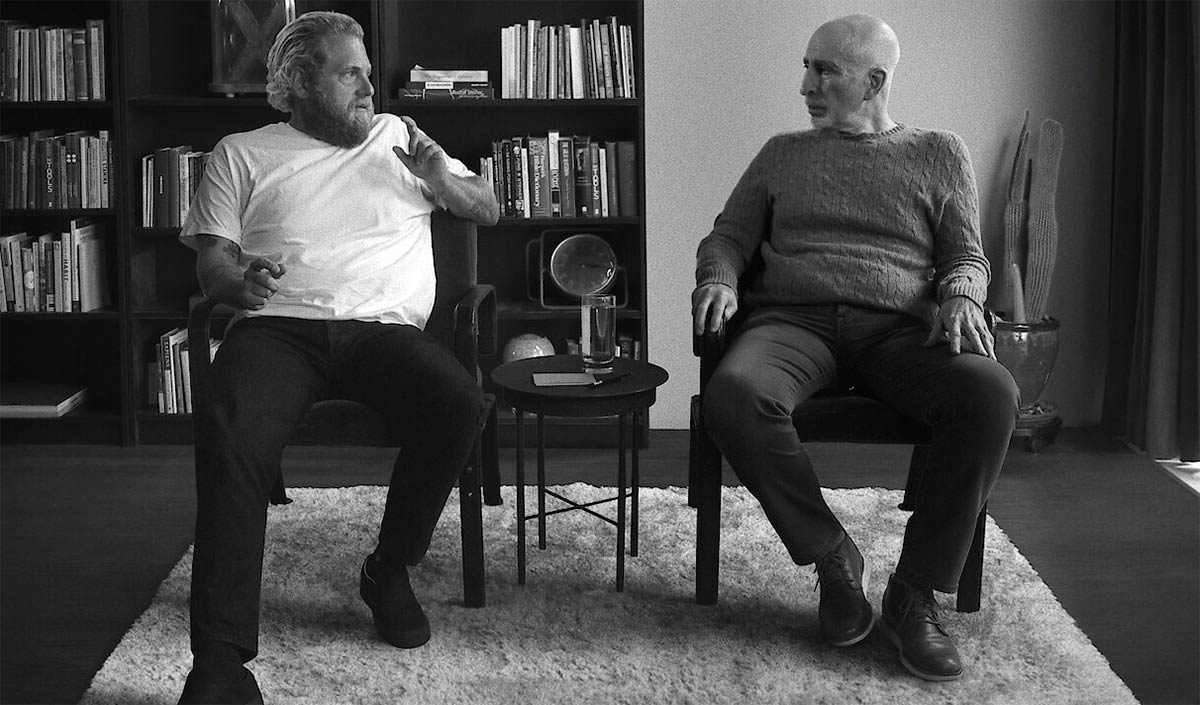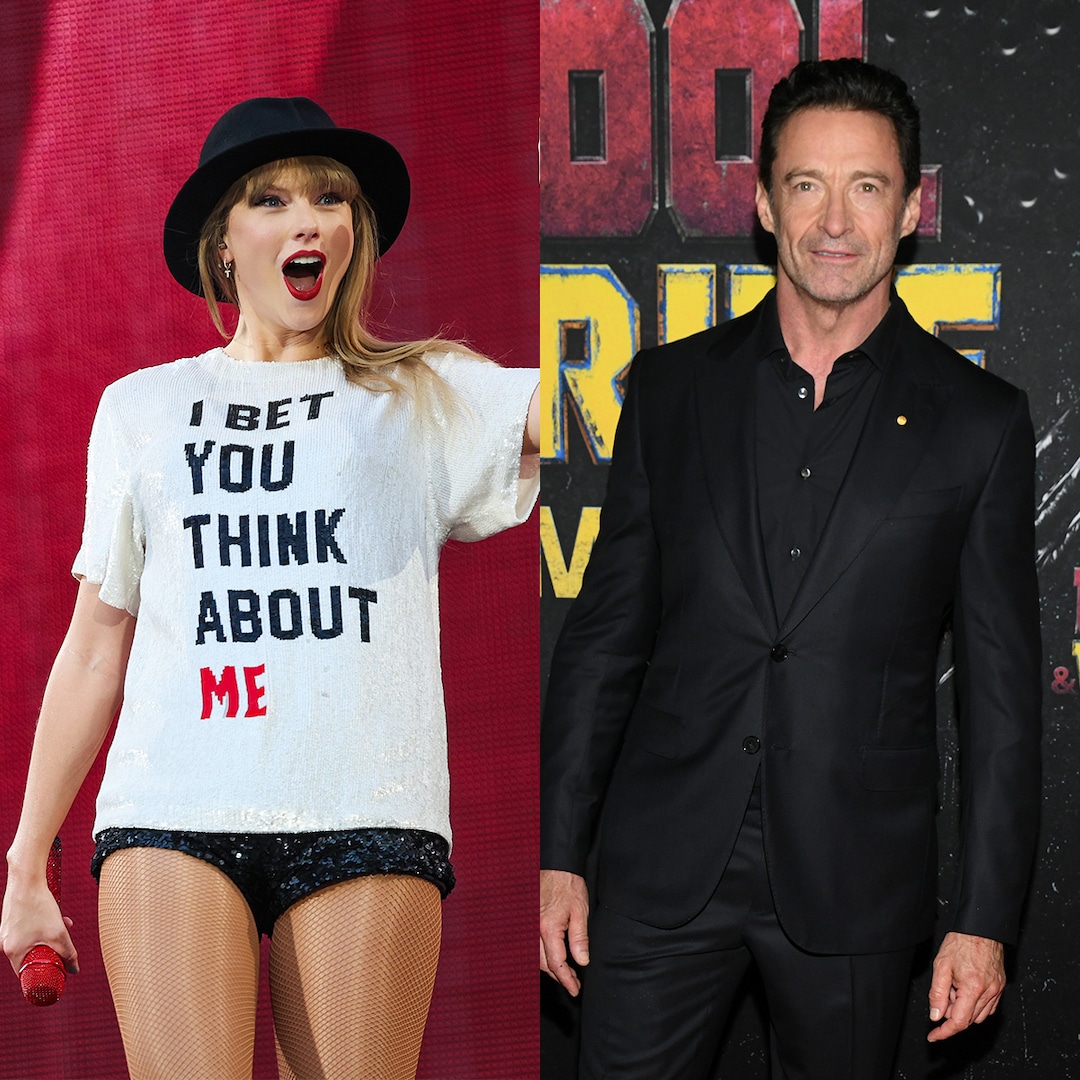
Jonah Hill Deconstructs His Healing Process In A Vulnerable, Honest & Heartfelt Tribute To His Therapist
Jan 16, 2023
You might ask, how’s Jonah Hill doing these days? Because truthfully, if you lean in and think about it, we haven’t seen the actor on screen all that much since he seemingly pivoted to directing with his promising debut, “mid90s,” in 2018. In the four years since, we’ve seen him all of twice, smaller supporting roles in “The Beach Bum” and “Don’t Look Up,” a quick appearance on “Curb Your Enthusiasm,” and some small animated voice work. What feels more comparatively pronounced is his directing work since an excellent episode of Adam McKay’s “Winning Time,” a Travis Scott music video, and his latest film, a documentary about his therapist and mental health.
READ MORE: ‘Stutz’ Trailer: Jonah Hill’s Mental Health Documentary Arrives On Netflix Next Month
While Hill certainly hasn’t vanished, if you’ve casually been wondering where he’s been, the actor/director’s new Netflix doc “Stutz” answers that question on both practical and spiritual levels. His doc has been two years in the making, and he’s also been taking a step back to take care of himself and his mind. Hill essentially merges his two recent passions, filmmaking and mental health, together in “Stutz,” a portrait of his therapist, who he clearly loves and feels has helped him immensely.
Hill’s enthusiasm for where he is— a good, or at least better place, mentally— his therapist Dr. Phil Stutz and the tools that he has given Hill to cope with his issues of anxiety, self-worth, and more, is really evident.
Shot in black in white in Stutz’s office—or so we think at first—there’s deep emotional honesty and vulnerability coursing through the doc. Hill wants to be honest about his problems because he feels like his therapist has been a gift. Now, of course, the entire world can’t hire Dr. Stutz to be their therapist; throughout “Stutz,” Hill examines, discusses, and shares the exact tools that Stutz has given him and tacitly acts like a big mental health advocate. Therapy has helped Hill immensely, and he’s hoping the joy, zeal, and wellness that Stutz has helped him achieve can be infectious if you so choose to take the journey to getting right in the head, so to speak.
One of the main characteristics of Stutz to Hill is he is more proactive than most therapists (at least in Hill’s experience). Hill details how he’s been frustrated in the past by therapists who simply just listen and let the subject come to their own conclusions. Stutz, in this way, presents as more unorthodox, much more hands-on, challenging, gently confrontational, and has a rigorous method for identifying problems, naming them, and finding solutions for them.
Some of these tools, visually modeled in the film, are titled “Aspects of Reality,” “Life Force,” “The String of Pearls,” our “Shadow” self, the “Maze,” and all these concepts that are outlined in the doc (and if you’re interested, Netflix has carefully detailed all the tools in a blog post).
“Stutz,” in many ways, could also be a doc about physical fitness if that were Hill’s path to well-being; he’s strongly advocating for the tools that helped him and he is practically desperate to share them with you; he feels so strongly about their positive net effects.
Hill’s personal journey centers on a lot of insecurity and self-image; his weight, his fame, his self-worth, the way the media crippled his self-esteem through his physical appearance, how Oscar nominations and success didn’t cure him of his unhappiness, and the like. Through “Stutz,” Hill shares the universal truth of it doesn’t matter how much fame and fortune you have; you’re a human being ultimately, and if you’re not happy and content with who you are with a person, all these privileges will help you cope, evade and manage your inner problems, but they won’t heal you in the end. We can’t escape who we are and how we feel about ourselves in the end if we’re not honest with ourselves.
Honesty is a huge theme, and in fact, at one point, Hill essentially calls bullshit on the façade, revealing that because of COVID and slowly shooting this doc over two years in various sessions that it could not be shot in Dr. Stutz’s office. Instead, it’s shot on a soundstage with greenscreen to look as if it’s in Stutz’s office; Hill even reveals he’s worn a wig through parts of it because his hair has changed, and initially, he wanted the film to appear as if it was shot one time in one long session. By stripping down the artifice of it all, Hill seems to want to deconstruct his film, his life, his problems, and all of it. Tear it all down, get real, get well and get to the heart of all his problems.
Some of those problems are exacerbated by the death of his older brother— Jordan Feldstein, a music manager for Robin Thicke and Maroon 5 who passed away suddenly at the age of 40 in 2017 from a DVT/pulmonary embolism—and confronting that pain takes time. The doc about Stutz and the therapist’s methodologies, at first, in the few times when Stutz tries to ask questions about Hill, the actor/director shuts down that line of questioning immediately, positing that the doc is about Stutz and not him.
But through the course of the doc and constantly revisiting footage and the edit, he realizes he’s ultimately avoiding himself and, in the quest for truth, eventually lets down his guard.
“Stutz” in the end isn’t revelatory per se, but it is deeply heartfelt, intimate, nakedly honest, and engaging. Hill’s relationship with Stutz is a strangely beautiful thing, too, not just a therapy and therapist relationship, but something that has blossomed into a true-found friendship. Whether that complicates their professional relationship is unclear, but there is a deep love between the two men, and Hill makes sure to dive into the therapist’s life story, his pains, and his current Parkinson’s disease diagnosis. Surely there’s much more to come from Jonah Hill’s filmmaking and storytelling career, and this interim, pandemic-shot doc about his road to healing is about as raw, candid, and poignantly soul-bearing as you could hope for. [B+]
“Stutz” is available on Netflix now.
Publisher: Source link
Lamorne Morris Thinks Kamala Harris Has This Advantage Over Donald Trump
Trump said that President Joe Biden, who dropped out of the race on Sunday while recovering from COVID-19, never really had the infection. “Really? Trump thinks Biden never had COVID?” Morris said on Monday. “You don’t pretend to have COVID to get out…
Jul 26, 2024
Khloe Kardashian Is Ranked No. 7 in the World for Aging Slowly
Khloe Kardashian's body is out for more than just revenge. In fact, the 40-year-old is one of the world's slowest agers—a revelation she learned after taking a blood test to determine her body's biological age compared to her calendar age.…
Jul 26, 2024
Reactions To Trump’s Kamala Harris Donation
Just as many white Americans used their Obama vote to excuse their internalized racism, Lauren Boebert seems to have adopted this same ideology, ignoring Trump's long record of racism against African Americans, Mexicans, Hispanics, Native Americans, Muslims, Jews, and immigrants, and discrimination against women and…
Jul 25, 2024
Hugh Jackman Reveals What an NFL Game With Taylor Swift Is Really Like
Hugh Jackman is happy to fill any blank space in Taylor Swift’s NFL game suite. In fact, the Deadpool & Wolverine star recently detailed his experience attending a Kansas City Chiefs game to root on Travis Kelce, alongside Ryan Reynolds,…
Jul 25, 2024











